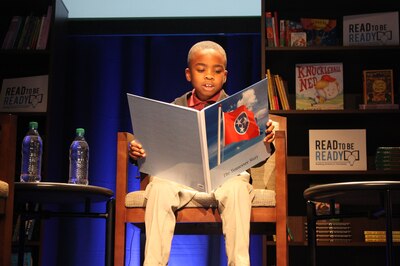Tennessee’s campaign to help its children read better is seeing encouraging results from investments in school-based summer camps for youngsters at risk of regressing during school breaks.
First-, second-, and third-graders who participated in the state’s Read to be Ready summer program showed gains in reading comprehension and accuracy skills for a third straight year, according to a report released Tuesday by the state Education Department.
And the last two summers generated statistically significant improvements in those skills, based on assessments given in the early and last days of the camps.
This summer, more than 7,700 children took part in 250 reading camps across the state. The free programs provided four hours daily of literacy-based enrichment activities for four weeks and matched every five youngsters with one teacher. High-quality books, field trips, and teacher trainings were part of the mix.
Education Commissioner Candice McQueen called the impact “powerful” in building basic learning skills, especially for children from low-income families who are most likely to experience summer slide and fall academically behind their more affluent peers.
But Tennessee has a long way to go to reach its goal of having at least 75 percent of third-graders reading on grade level by 2025. Despite an encouraging uptick on the most recent state tests, only 37 percent of third-graders scored proficient in reading. And on national test results released this spring, fourth-graders’ reading performance remained mostly flat compared to 2013, when scores spiked for both reading and math.
Tennessee declared war on its reading problem in 2016, as McQueen joined Gov. Bill Haslam and his literacy-minded first lady, Chrissy, to launch Read to be Ready. The initiative’s centerpiece is the development of a cadre of literacy coaches to improve educator expertise.
The campaign also piloted a dozen camps that first summer with a $1 million gift from the Dollar General Literacy Foundation. The results were promising enough to expand the program last year with $30 million allotted over three years from the state Department of Human Services.

School districts host their own camps using state grants awarded based on their applications. This year, more than three-fourths of Tennessee’s 147 school systems took advantage of the funding.
Those districts sent teachers who staff their camps to state trainings on literacy instruction. While the first two summers focused on integrating authentic reading and texts into the camps, this year’s trainings prioritized writing skills and increasing student interest and stamina for the written word.
The grants also provided each student with an average of 25 books for their home library this summer — sending more than 193,000 books home in all.
Editor’s note: This story has been updated to include the percentage of third-graders who scored proficient in reading on the most recent state test.

